It's a Money Thing®
The 7 Cooperative Principals of Credit Unions
While bank and banking are universally understood and accepted terms, the term credit union is still largely misunderstood and unknown to many. Credit union is an unusual term, isn’t it? Is it just another name for a bank? Is it a credit card company? Do I have to be in a union to join?
The first working credit union models sprang up in Germany in the 1850s and 1860s and, by the end of the 19th century, credit unions had taken root across Europe. These upstart financial institutions, which drew inspiration from co-operative successes in other sectors, including retail and agriculture, went by a variety of names, including people's banks, co-operative banks and credit associations. Some notable brand names from the time: the People’s Bank of Belgium, the People’s Bank of Milan, the Cooperative Bank in England, Crédit Mutuel in France, and more.
While these early credit unions had slightly different names, they were all best identified by their adherence to co-operative principles, especially those related to membership and control. Essentially, a co-operative is an autonomous association of persons united voluntarily to meet their common economic, social and cultural needs and aspirations through a jointly owned and democratically controlled enterprise. These enterprises are based on the values of self-help, self-responsibility, democracy, equality, equity and solidarity. In the tradition of their founders, co-operative members believe in the ethical values of honesty, openness, social responsibility, and caring for others. Based on those values, credit unions today adhere to 7 co-operative principles:
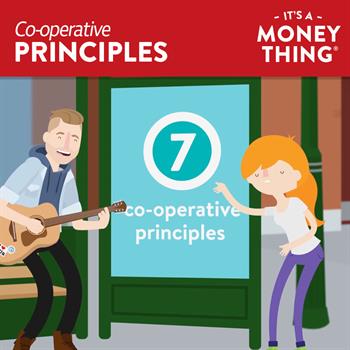 | 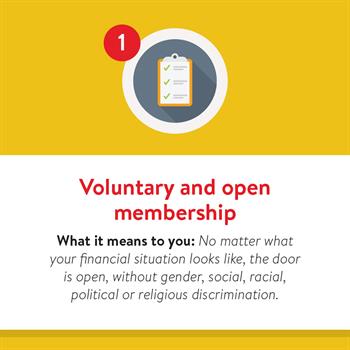 | 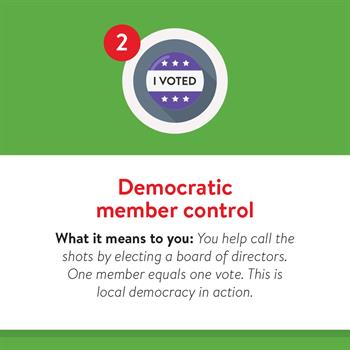 |
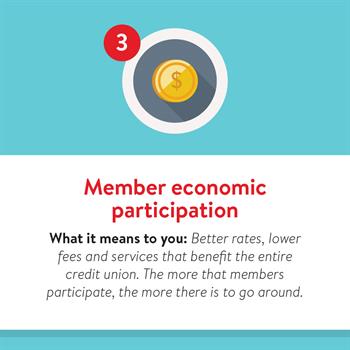 | 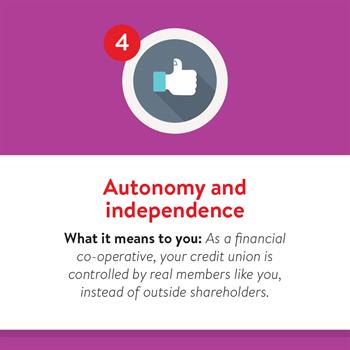 | 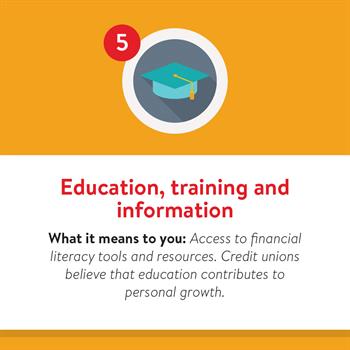 |
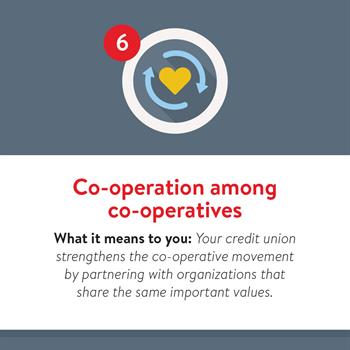 | 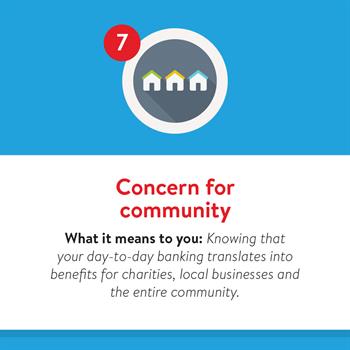 |
Unlike the credit unions of Germany or Quebec, most credit unions in the U.S. emerged from an employer-based bond of association. In addition to the advantages of access, information and enforcement that resulted from members sharing the same workplace, the employer-based bond permitted credit unions to use future paychecks as collateral. Although the word ‘credit’ might make you think that the earliest credit unions offered only credit services, they usually also offered savings services, and often payment and insurance services as well.
The word ‘union’ can also be confusing. At first blush, you may think that members of a credit union need to be member of a labor union, but that’s not the case. Members are simply united together because they share a similar situation. This affiliation can be where they live, where they work or what they believe in. While ‘credit union’ may be a bit harder than ‘bank’ to grasp, it’s our name and we’re sticking with it! To paraphrase Shakespeare’s Romeo and Juliet, “A rose by any other name would smell as sweet”.

